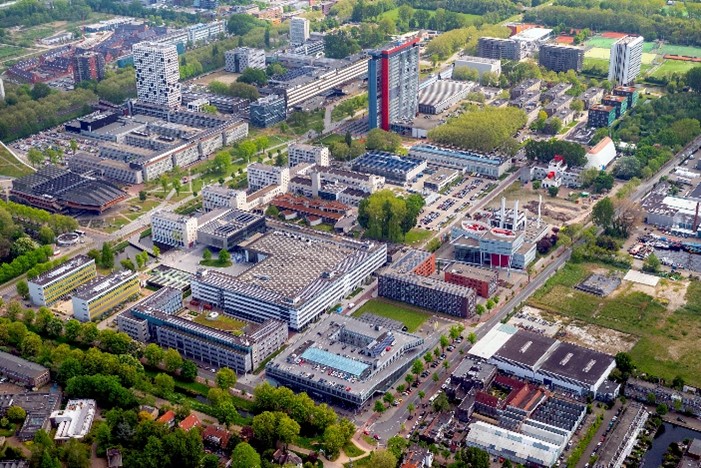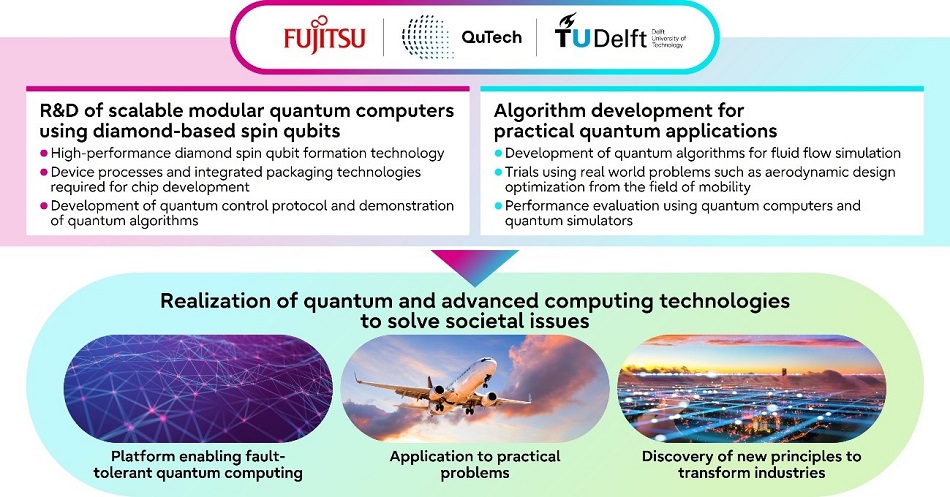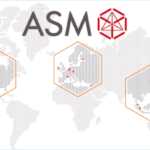ASIA ELECTRONICS INDUSTRYYOUR WINDOW TO SMART MANUFACTURING
Fujitsu, Delft University Establish New Quantum Lab
Fujitsu and Delft University of Technology has established the Fujitsu Advanced Computing Lab Delft at Delft University of Technology. Accordingly, the industry-academia collaboration hub will focus on the development of quantum computing technologies.
The new collaboration hub will be positioned as part of the Fujitsu Small Research Lab initiative. Particularly, it dispatches Fujitsu researchers to technology incubators at leading global universities to conduct joint research with some of the top researchers in their fields. These include professors as well as the next generation of innovators.
The Advanced Computing Lab will rise at world-leading quantum technology research institute QuTech – a collaboration between Delft University of Technology and the Netherlands Organization for Applied Scientific Research (TNO). Moreover, it aims to accelerate R&D of diamond-spin quantum computing, a technology that Fujitsu and Delft University of Technology have been jointly researching since October 2020.

In addition, the two partners will further advance the development of real-world quantum applications. Moreover, it will aim to realize innovative fluid simulation technologies that apply quantum computing to the field of computational fluid dynamics, where large-scale and complex computations represent an ongoing challenge.
Seeks Potential Breakthroughs
Vivek Mahajan, SEVP, CTO and CPO, Fujitsu Limited said the partnership offers a chance to unlock new possibilities in quantum. “With Fujitsu’s top-class technologies and talented researchers from one of world’s leading institutions in this exciting field, we can further work toward potential breakthroughs in quantum hardware development.”
Meanwhile, Prof. Tim van der Hagen, Rector Magnificus/President of the Executive Board at Delft University of Technology, said, “At Delft University of Technology, we develop and deliver technology-driven, innovative solutions to societal problems and explore potential applications of quantum computers in a broad range of fields.”
In addition, van der Hagen said, “TU Delft is the ideal place for industry and science to collaborate on advancing this key technology. We are very proud that Fujitsu, building on their already successful collaboration with QuTech, has chosen the Netherlands and Delft to establish their Advanced Computing Lab.”
Meanwhile, Dr. Shintaro Sato, Fellow SVP & Head of Quantum Laboratory at Fujitsu Research, Fujitsu Limited, commented, “I am proud of what we have achieved together so far, and I am confident that this new lab will form the foundation for fruitful future collaboration.

Focuses on Diamond-Spin Quantum Technology
Fujitsu has been conducting basic research and development into quantum computers. Particularly, focusing on the use of diamond-based spin qubits with TU Delft.
To date, the two partners have been conducting R&D on quantum computers using diamond-based spin qubits. This aims to create a blueprint for future modular quantum computers that can scale beyond 1,000 qubits.
To make practical quantum computing a reality, Fujitsu and Delft University of Technology have been researching associated technology layers, from the device level to control systems, architecture and algorithms. As a result, the two partners realized the world’s first fault-tolerant operation of spin qubits in a diamond quantum processor using the diamond NV center method.
Fujitsu and Delft University of Technology are further working to improve the performance of qubits by integrating SnV centers. Nonetheless, these are gaining increasing attention as high-performance diamond spins, in scalable nanophotonic devices showing efficient single-photon coupling (arXiv: 2311.12927).
The two partners have established the Fujitsu Advanced Computing Lab Delft to further strengthen their cooperation. Moreover, enhance the collaboration and research framework for the development of advanced computing technologies based on quantum technologies.
Moving forward, Fujitsu and Delft University of Technology will position the new hub as a leading industry-academia research and development center in Japan and the Netherlands. Finally, it will also aim to promote further collaboration including the development of talent that can lead the development of solutions to societal issues using advanced computing technologies.




